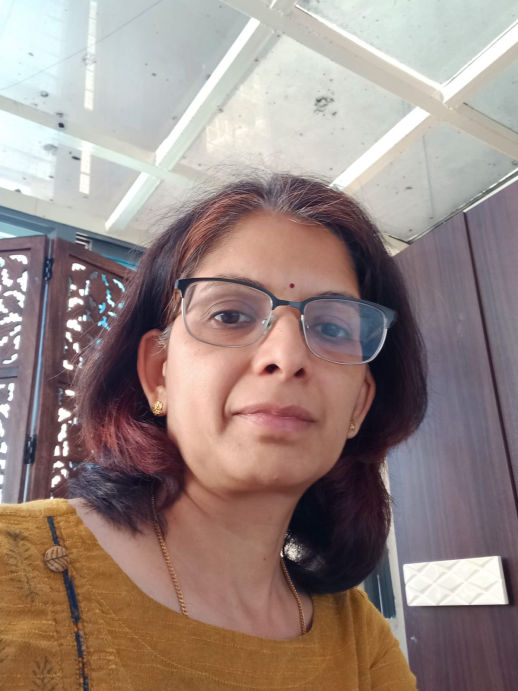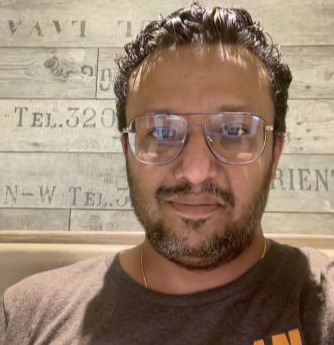Contact Us
- e-mail:
info@cubebioai.com
- Address: PES University Incubation - PESU Research, Electronic City, Bengaluru
AI-based Predictive Workflows Driven by Novel Biological Hypothesis
We have identified 23 Novel repurposing candidates
These span across 11 separate disease areas
We have dynamic molecular simulation data of various protein, protein-protein and drug n-mers totalling 25,000 nanoseconds
Developed 5 AI workflows that pursue distinct scientific paradigms and use in-house semantically integrated Xomic, drug & clinical data


Prashanth focuses on the development, innovation and prototype implementation of the AI-based platform for drug discovery at CubeBio. He has worked at various science-centered leader positions across leading pharmaceutical and biotech companies (Strand Life Sciences, Reliance Industries). He has held post-doctoral fellowships at EPF Lausanne, Switzerland & Emory University, Atlanta, USA. He received his Ph. D. in Computational Chemistry and Bioinformatics (minor) at Georgia State University, preceded by M. S. in Computer Science and Bioinformatics (minor).
His research interests include the application of AI to drug discovery, and it’s interplay with semantic integration of X-omic data towards identifying novel insights in the area of drug-target interactions.
Scholar
Madhura contributes towards developing acceleration strategies for of AI algorithms across multiple hardware architectures along with Dr. Mario Porrmann and Jens Hagmeyer. She was the recipient of two prestigious post-doctoral fellowships: an International Research Fellowship from the German Research Foundation (Deutsche Forschungsgemenischaft) and Swiss National Science Foundation’s Marie Heim-Vögtlin fellowship. These fellowships grants were implemented at the Processor Architecture Lab, EPFL, Switzerland and the High Performance Computing Lab, IISc., Bangalore. Her research interests are in Reconfigurable Computing and Processor Architectures. She received her PhD in Electrical Engineering from the Heinz Nixdorf Institute, University of Paderborn, Germany. She has a Master's degree from the University of Alberta, Canada. Before that, she spent about 4 years in the Indian Semiconductor Industry.
We have integrated various biological, chemical and clinical entities like proteins, small molecule drugs, clinical trials data, etc., preserving semantics across these diverse sources
Accelerated hardware were optimized to perform long-time scale molecular simulations. Simulations range from PPI systems, as well protein-target systems for direct binding candidates
Deep neural nets, Autoencoders, Markov-State models are used to extend spatial data obtained from simulations and inferences from semantically linked data sets into producing novel repurposed drugs
Wide-data integrations, plug-and-play AI workbenches allow us to explore various drug repurposing paradigms. Representative workflows are candidates relevant to specific disease areas or specific drug scaffolds

Encouraged by the discovery of novel drug-target interactions using low-throughput techniques, CBA is looking to partner with pharma companies to perform semantic wide-data integration with the goal of generating compound screens that can be validated using modern high-throughput binding / activity detecting techniques (ex. L1000 and other pharmaco- transcriptomic screening tech.)
Prof. Jawahar Doreswamy is an advisor to the company. He inducted CubeBIo AI into the university's incubation program. He is the CEO and Pro Chancellor of PES University. He has spearheaded the development of PES University for 3 decades, and steered it to being the No. 1 Engineering Institute in Karnataka (India) YOY.

Prof. Donald Hamelberg is one of the foremost experts in Biophysical Chemistry at Georgia State University, Atlanta. He is the VP of Research & Economic Development of Georgia State University. He advises us on allosteric network characterization and modelling.

Prof. Dr.-Ing. Mario Porrmann is head of the Computer Engineering group at Osnabrück University. Both Mario & Jens work closely with Madhura to formulae strategies to build and test acceleration strategies to enable rapid scientific hypothesis testing.

Jens researches in the area of FPGA-centric system design, design of dynamically reconfigurable systems and resource-efficient computer architectures. This helps us build accelerated workflows for both simulations & AI algorithms.

AI Website Generator